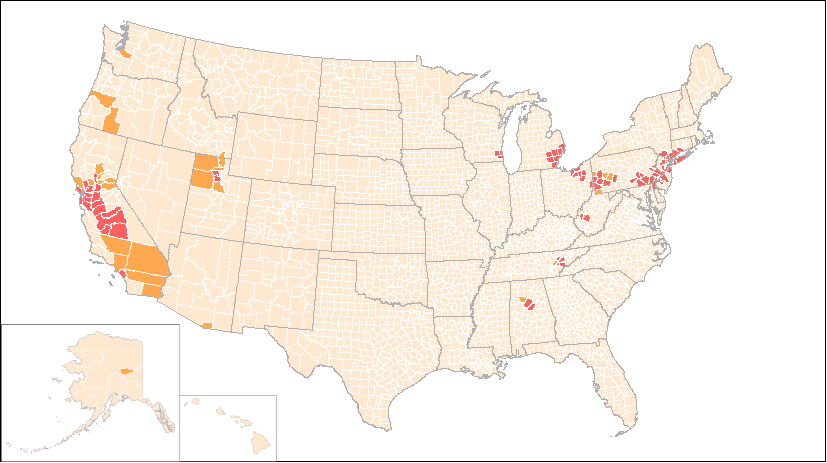
 By Sarah Coefield
By Sarah Coefield
Nov. 2, 2009
Great Lakes particle polluters are cleaning up their acts.
The number of areas violating one particulate pollution standard has fallen from 36 to 12 in the past year, according to a recent report by the U.S. Environmental Protection Agency.
Large cities like Detroit, Milwaukee, Cleveland, Pittsburgh and New York City still report problems. But Chicago is notably absent from the list of particulate polluters.
While their compositions vary, the particles in question are all about the same size: small. In this case, 2.5 micrometers, or about 100 times thinner than a human hair.
That small size can lead to big health problems.
The finer a particle is, the deeper it burrows into the lung, said John Summerhays, an environmental scientist with the EPA Region 5 office. The particles make asthma worse and can cause premature death, so it’s important to lower human exposure, he said.
Fine particles are thrown into the air by vehicles, factories and coal-fired power plants. Depending on where they come from, the particles may be heavy metals, black carbon, or chemical compounds such as nitrates and sulfates.
EPA looks at the average particulate readings for a 24-hour period over three years. Because of the health risks associated with fine particles, the agency lowered its standard from 65 micrograms per cubic meter of air to 35 in 2006.
The lowered standard contributed to areas ending up on the nonattainment list. In general, the areas with too much particle pollution tended to be about 5 percent above the standard, Summerhays said.
The number of particle pollution violators in the region has fallen, but they still amount to 39 percent of the nation’s nonattainment areas.
Chicago, which had been on the preliminary nonattainment list since its institution two years ago, has a few people puzzled by its absence this time around.
“It’s remarkable to us that Chicago is not violating (the standard),” Summerhays said.
The folks in Illinois weren’t surprised.
“We think it was a combination of factors,” said Laurel Kroack, the chief of the Bureau of Air at the Illinois Environmental Protection Agency. Scrubbers in coal-fired power plants, cleaner diesel, favorable weather and the depressed economy keeping cars and trucks off the road likely all contributed to Chicago’s favorable rating.
Under EPA regulations, the states with pollution violations have three years to formulate plans to clean up their air, and then five years to implement those plans.
But not all states will be playing along.
Tough air regulations already in place in Ohio and Wisconsin have officials confident their areas will reach attainment.
Wisconsin implemented four significant regulations to lower air pollution, said Al Shea, the administrator for the Division of Air and Waste in the Wisconsin Department of Natural Resources. Those regulations are slated to lower nitrogen oxide emissions by 60 percent and sulfur dioxide emissions by 80 percent by 2015, he said. Mercury emissions are to decrease by 90 percent. All three pollutants are associated with power plants.
“Wisconsin will meet the new (particle) standard with the rules now in place,” Shea said. That was one of the big selling points for making the rules in the first place, he said.
In Ohio, particulate levels have been on a downward trend for 10 years, said Heidi Griesmer, a spokesperson with the Ohio Environmental Protection Agency. “We expect that to continue,” she said. Controls on power plant emissions and cleaner diesel are contributing to the trend, Griesmer said. The Ohio agency will use computer modeling to make sure new efforts won’t be necessary..
The standard was designed to indicate what concentration is of potential health concern, Summerhays said, so meeting it will be a step forward for protecting human health. “Breathing is a pretty important part of staying healthy,” he said.
Great Lakes Echo reports on the environment.
This article has been updated for clarification on 11/2/2009.